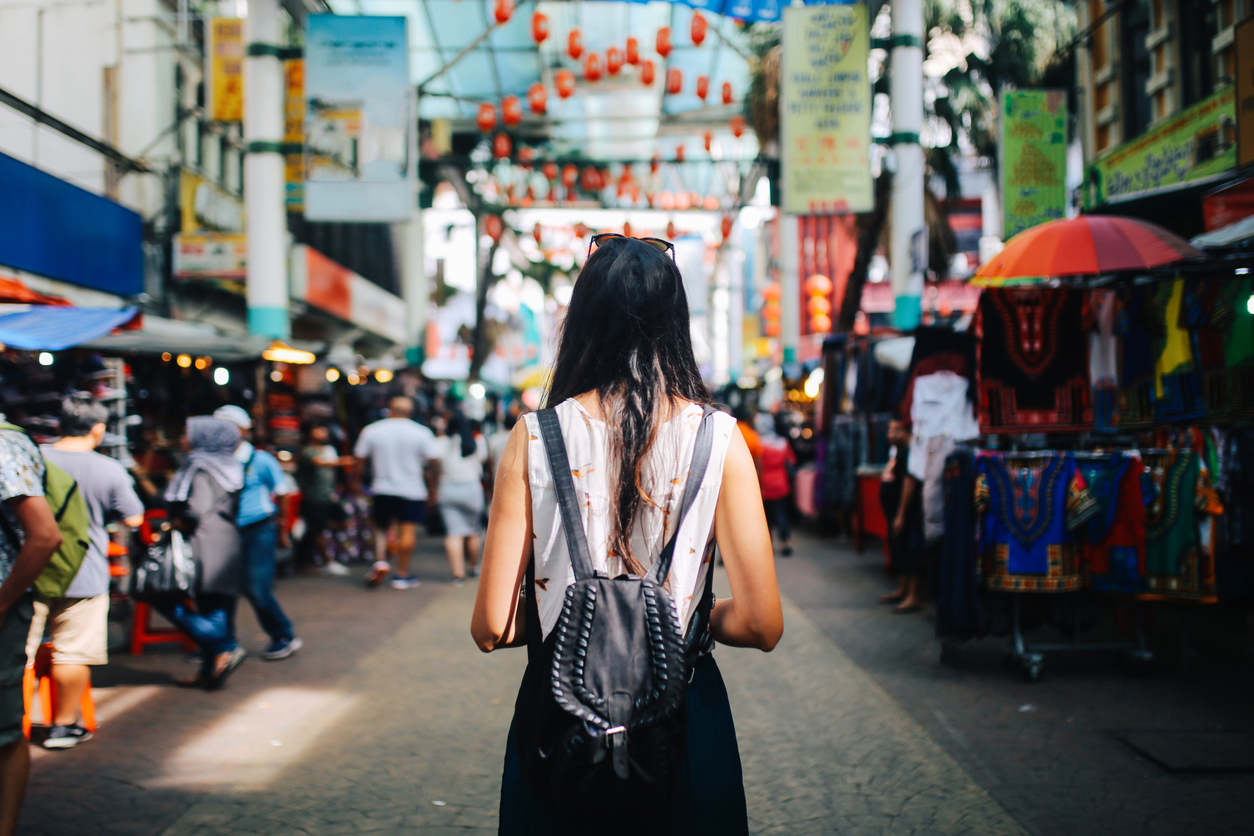Female travelers can face unique security risks when traveling, and mitigating those risks begins prior to departure. Share this helpful information with your female travelers headed abroad to help ensure their trips are safe and successful.
Note: Regardless of gender or sexual orientation, anyone can take the advice in this piece, but those who identify or appear as a woman can face unique security risks.

Cultural Norms and Laws
Researching all travel destinations prior to arrival is crucial—even if it is just for a night or a quick layover. The most important information to know about a location is what the cultural norms are, this is often shaped by the religious majority in the country. For example, in Saudi Arabia, a female traveler is not required to dress modestly or cover the body from head to ankles but doing so will facilitate in limiting security risks such as harassment. In Mexico, though the weather is hot, and beachwear is common, it is advised to wear modest summer wear to help curb unwanted attention. Another crucial piece to research is how the police force in a country responds to sexual assault cases and interacts with women in general. Many countries’ police forces do little to support women who report sexual assault and may tantalize or even push legal action against a woman, notably in many Middle East countries. Researching the police norms is important, and female travelers should be prepared to understand how to seek assistance and report an incident directly to the country’s Embassy if it becomes necessary.
Culturally Appropriate Attire
Once the traveler has researched cultural norms and laws, it is time to start packing. Some things that are advised in addition to culturally appropriate clothing are a day bag large enough to carry documents, cash, and a whistle or handheld alarm system. The latter are useful self-defense tools as they can utilized in potentially dangerous situations without hindering any local laws. Opting for limited jewelry (if any) is advised, female travelers are often targeted for wearing jewelry as it can be perceived as affluent which could lead to theft and assault.
Common Phrases
In addition to packing the right clothing, female travelers should also consider learning common phrases for their intended destinations. For example, ‘yes’, ‘no’, ‘may I have’, ‘where is the’, and ‘how much is’ are great starting points. Other phrases that could help avoid dangerous situations include ‘I do not speak’ …<followed by the country’s language> can assist in avoiding interactions with unwanted individuals (regardless if the traveler speaks the language or not!). Learning how to ask for help and to yell for help in the country’s language is also important for a female traveler wherever they are in the world. Alternatively, if in a dangerous situation, yelling ‘fire!’ in the country’s language may attract assistance faster than yelling help. Creating a cheat sheet with common phrases, along with pre-travel practice, are both great ways to prepare for any international trip.
Accommodations
Researching an accommodation prior to arrival is crucial—first, it’s important to have direct communication with the staff and explore different reviews of the accommodation before arrival. The saying “you get what you pay for” often rings true with many accommodations, and above all things, prioritize location. What is the crime rate in that location and have there been recent incidents, particularly involving females in that intended location? These are important questions to consider. Additionally, if arriving at the location during the daylight hours is not possible, it is advised to book the accommodation closest to transition points. Transition points refer to any location of arrival or departure, most often transportation hubs such as train stations or airports, though can also simply be the drop-off location of a taxi or rideshare. Limiting time walking around at night is important for female travelers as well, as there is often a heightened crime rate at night. Travelers are also advised to write their accommodations down, in a discreet place and keep on their persons—so if lost, or in a cab and don’t speak the language, the paper can be shown.
Emergency Contacts
Sharing a full travel itinerary with emergency contacts is also important so someone is always aware of the traveler’s general whereabouts at all times. Periodically checking in with these contacts throughout the course of the trip is also recommended. While traveling, it is understandable to want to post on social media, but travelers should refrain from giving itinerary information or real-time location updates on social media to help protect their privacy. Alternatively, a social media post schedule is advised where posts are made sporadically and always once the traveler has left individual locations.
Additional Resources
On Call International’s Global Security Team is available for pre-trip destination consults to discuss security risks and cultural norms in specific countries and itineraries; additionally, your travelers may also find these below resources helpful:
-
- CIA Factbook – An overview of countries history, government, economy, and touches on several societal points, does not dive into cultural norms and traveler security issues.
- OSAC – A partnership between the United States Government and American private sector on international security issues, provides information on threats within specific countries.
- Smart Traveler Enrollment Program – US Travelers will receive updates on their destination, and if an emergency arises the embassies will know where to look for the traveler and work to contact their emergency contact.
Want to Learn More?
For over 25 years, On Call International has provided fully-customized travel risk management and global assistance services protecting millions of travelers, their families, and their organizations. Contact us today and watch our video to learn more. You can also stay in touch with On Call’s in-house risk management, travel health and security experts by signing up for our quarterly Travel Risk Management (TRM) newsletter.


